
Indigenous games for children.
- Subject:
- Health & Fitness
- Indigenous Perspectives
- Physical Education
- Material Type:
- Primary Source
- Author:
- Saskatchewan Physical Education Association
- Date Added:
- 09/01/2021

Indigenous games for children.

Indigenous people have long passed on knowledge from generation to generation through oral traditions, including storytelling. Storytelling teaches history, values, beliefs and ways of life.
Enjoy this series of oral stories told by Elder Hazel, where you'll hear all kinds of fascinating stories.
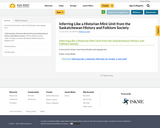
A mini unit for Grades 3 and 4 Social Studies and Language Arts

The Legacy of Hope Foundation is a very comprehensive site that offers lots of great resources that help to promote healing and Reconciliation in Canada. The Legacy of Hope Foundation's (LHF) goal is to educate and raise awareness about the history and existing intergenerational impacts of the Residential School System (RSS) and subsequent Sixties Scoop (SS) on Indigenous (First Nations, Inuit, and Métis) Survivors, their descendants, and their communities to promote healing and Reconciliation.Check out each of the sections to see the great resources they have to offer.

Our Mennonite History for Young People series of education materials tells the story of Mennonites who arrived in Manitoba from Russia in the 1870s and migrated to Mexico and Paraguay in the 1920s.
This series has been developed to be an excellent addition to existing social studies curricula in Canada for both public and private schools with Low German Mennonite students. The books can also serve as non-fiction readers for language classes.
The downloadable series includes:
Volume 1: Leaving Canada
Volume 2: Discovering Mexico
Volume 3: A New Home
Volume 4: Leaving Russia
There are also downloadable workbooks, worksheets and assignments to accompany it books in the series.
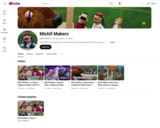
This is a recently developed Youtube series that uses code-switching or "translanguaging" to teach English speakers Michif words. Each episode is approximately 12 minutes and features a recurring cast of characters that teach about Michif culture as well as language. Predominantly Heritage Michif is used, but there is a character who speaks the Northern dialect as well.
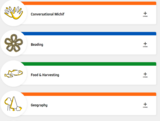
Métis culture will continue to be lived and celebrated when we pass our knowledge on to the generations who follow us.
Everyone is on a learning journey. While exploring historical and contemporary Métis ways of knowing and doing, these learning packages provide knowledge and understanding for students and teachers. Topics include: Traditional Harvesting Methods, Geographical Terms, Music and Dance, Conversational Michif, Beading, and Traditional Foods. The lesson plans and videos highlight Knowledge Keepers walking in the tall prairie grass, Elders preparing la galette (bannock), students learning Michif numbers, and family greeting each other for tea. We hope these resources will assist you in your learning.

Engaging lesson plans based on the Five Foundational Knowledge Themes. Educators have the opportunity to build their foundational knowledge while delivering Métis content through lessons that reflect promising practices.

The National Film Board of Canada's award-winning online Screening Room has over 3,000 productions.
Films on this site can be streamed free of charge, or downloaded for your personal use for a small fee. We also offer educational works on a subscription basis to schools and institutions.
Our Collection includes documentaries, animations, experimental films, fiction and interactive works. We showcase films that take a stand on issues of global importance that matter to Canadians—stories about the environment, human rights, international conflict, the arts and more.
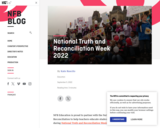
NFB Education is proud to partner with the National Centre for Truth and Reconciliation to help teachers educate students about Indigenous realities during National Truth and Reconciliation Week, as well as throughout the year.
This year, the theme of National Truth and Reconciliation Week is “Remembering the Children,” where we memorialize the children lost to the residential school system and honour Survivors and their families. The expanded program features age-appropriate material for students in Grades 1–12.
All sessions will be held virtually on Hubilo. Registration is required to stream live or pre-recorded sessions and to participate in the Q&A segment. The link for registration is provided on this page.
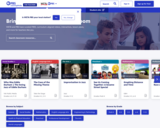
PBS has created and shared tons of media rich, engaging, digital lessons for a wide range of grade levels and subject areas.
Find FREE videos, interactives, lesson plans, and more just for teachers like you. Choose from lots of filters that will customize your search so you can find exactly what you're looking for.
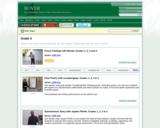
Check out these great video/curricular resources for Grade 4. The ROVER videos all indicate the curriculum outcomes that they address.
ROVER (Recommended Online Video Education Resources) is a video streaming service for Saskatchewan teachers and students in the PreK-12 education system. It is managed and maintained by the Saskatchewan Ministry of Education. ROVER is a video-on-demand service that provides teachers and students with the convenience of immediate access to streamed, educational videos that support curricula.
This site also offers all of the curriculum documents for all grade levels.
If you are unable to access the site, it may be because a Saskatchewan Ministry of Education Blackboard login is required. All students have an Edonline account, so contact your child's school or the Ministry of Education’s Support Desk at 1-866-933-8333 or email at stans@gov.sk.ca for login information. Your child's student number will be required.
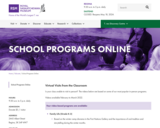
The videos below are based on some of the most popular in-person programs at the Royal Saskatchewan Museum:
- Family Life (Grade K-2) - Based on the winter camp diorama in the First Nations Gallery and the importance of oral tradition and storytelling during the winter months.
- Winter Whys (Grade 1-3) - Discover what our Saskatchewan animals do to prepare for our long, cold winters.
- Discovering Fossils (Grade 1-3) - Students learn about different types of fossils and discover how Royal Saskatchewan Museum paleontologists study fossils to learn about the past.
- Slice of Life (Grade 4-8) - Explore the differences in climate, landforms and biodiversity between the present ecozones of Saskatchewan and compare to the biodiversity, landforms and climate of Saskatchewan in the Late Cretaceous to see how our province has changed over time.
The RSM also offers many classroom resources for all age groups that you will want to check out. They include:
- PreK-1 - Feathered Friends
- Gr 2 - Family Life
- Gr 1-3 - Winter Animals
- Gr 1-3 - Discovering Fossils
- Gr K-5 - Storytelling with Elder Hazel
- Gr 4-8 - Slice of Life - Adaptations
- Gr K-8 - Sacred Teachings
- Gr K-12 - Artwork in the Galleries
- Gr K-12 - The Tipi
- Gr K-12 - Scotty the T-Rex
- Gr 5-12 - Museum Careers
- Gr 5-12 - Traditional Knowledge Keepers

Rupertsland Organization for Teaching and Learning has developed some excellent resources to learn about the Métis history in Alberta that are recommended for all educators. Resources are continually being added as they are created and approved in support of educators’ learning and teaching.
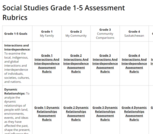
Social Studies assessment rubrics for every grade from Grade 1-9, for each unit.
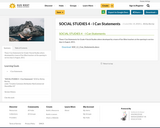
These I Can Statements for Grade 4 Social Studies where developed by a team of Sun West teachers at the opening in-service days in August, 2011.
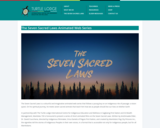
The Seven Sacred Laws is a colourful and imaginative animated web series that follows a young boy on an Indigenous rite of passage: a vision quest. On his spiritual journey, he meets seven sacred animals that teach him how we as people should live our lives on Mother Earth
In partnership with The Turtle Lodge International Centre for Indigenous Education and Wellness in Sagkeeng First Nation and IG Wealth Management, Manitoba 150 is honoured to present a series of short animated films on the Seven Sacred Laws. Written by Anishinaabe Elder, Dr. David Courchene, directed by Indigenous filmmaker, Erica Daniels of Peguis First Nation, and created by Manitoba’s Peg City Pictures Inc., the vignettes tell the stories of Indigenous Peoples in their own voices, in a format that is accessible not only for Indigenous people, but for all Manitobans.

The Smithsonian Learning Lab puts the treasures of the world's largest museum, education, and research complex within reach. The Lab is a free, interactive platform for discovering millions of authentic digital resources, creating content with online tools, and sharing in the Smithsonian's expansive community of knowledge and learning.
Use the search tool to discover lots of resources on endless topics. The sky's the limit!
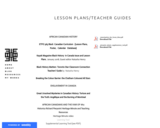
This comprehensive resource offers many lesson plans/teacher guides for:
- AFRICAN CANADIAN HISTORY
- ENSLAVEMENT IN CANADA
- CANADA AND THE UNDERGROUND RAILROAD
- AFRICAN CANADIAN WOMEN
- AFRICAN CANADIAN LABOUR HISTORY
- TEACHING BLACK HISTORY
You will find downloadable lessons plan/Teacher Guide ideas for Emancipation Day, Richard Pierpoint Heritage Minute and “…and still I rise:” A History of Black Workers in Ontario, 1900 to Present.
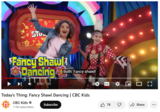
Niimin shows Janaye some Fancy Shawl Dancing footwork, and shows off her skills in Studio K.Make sure and SUBSCRIBE to be the first to know about new shows, ...